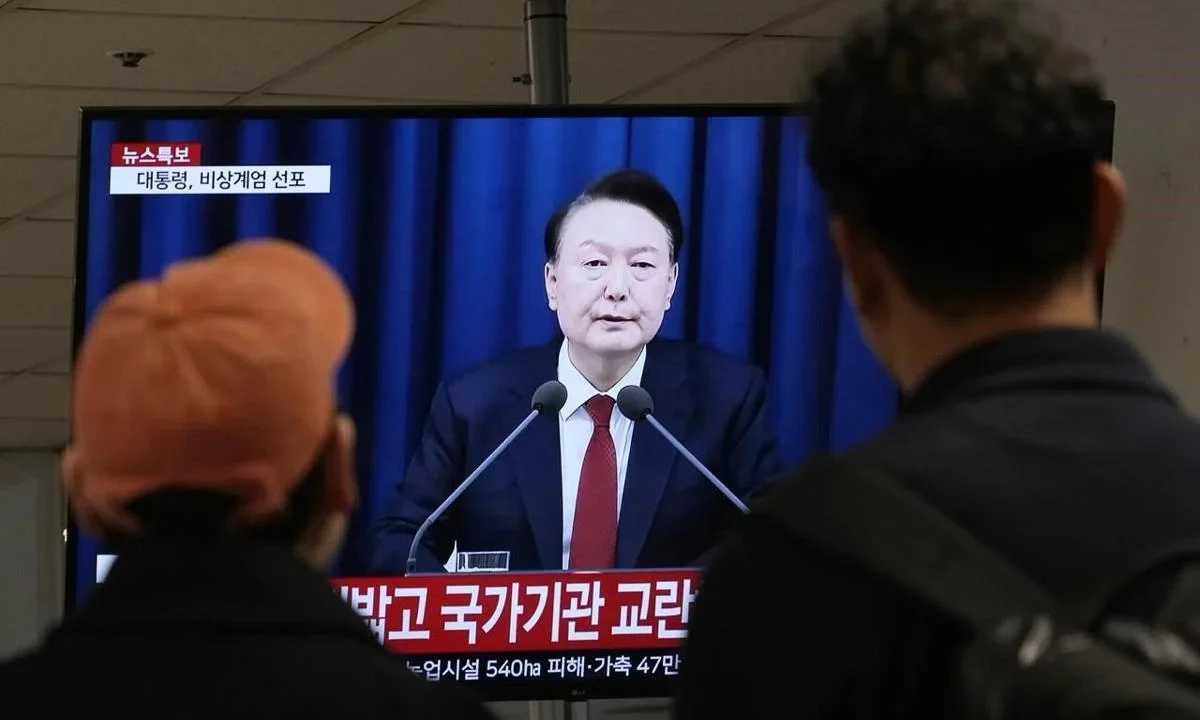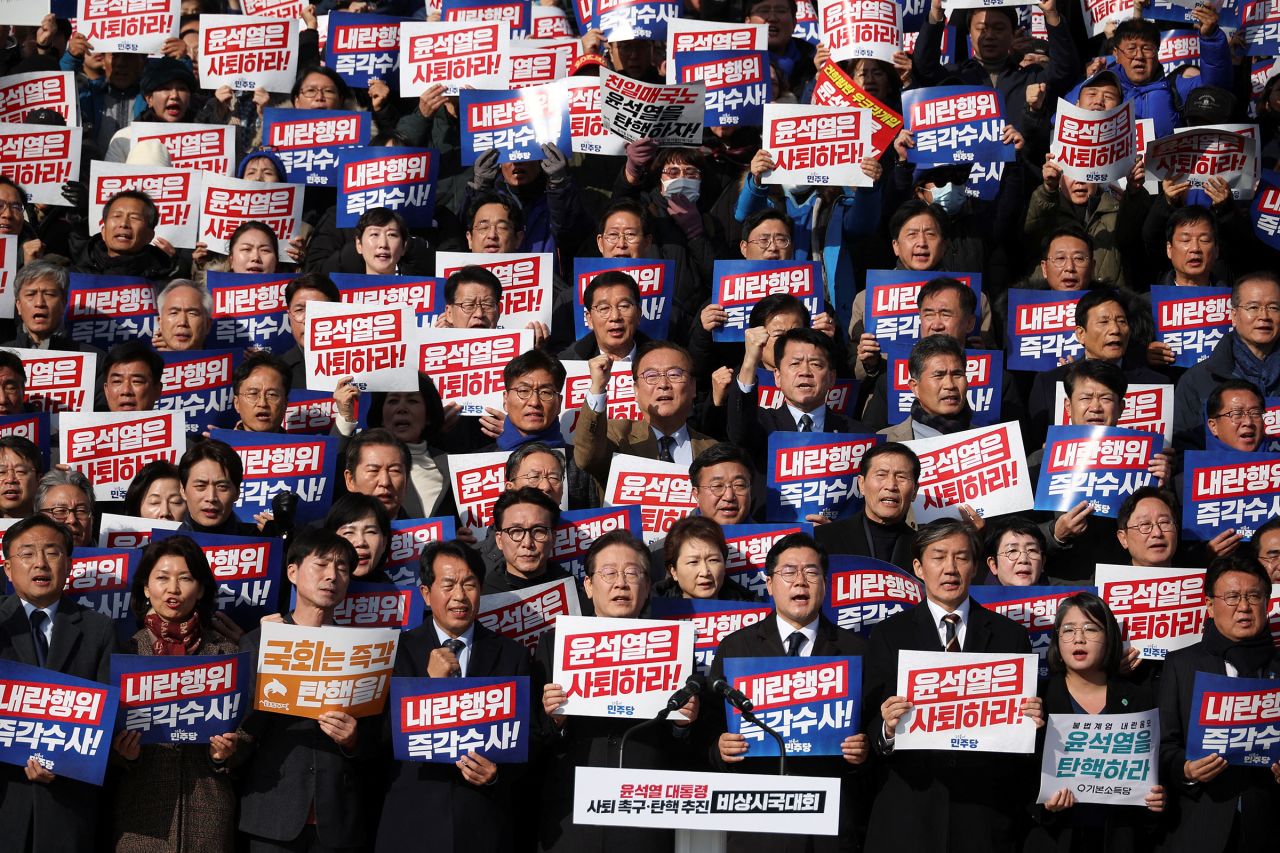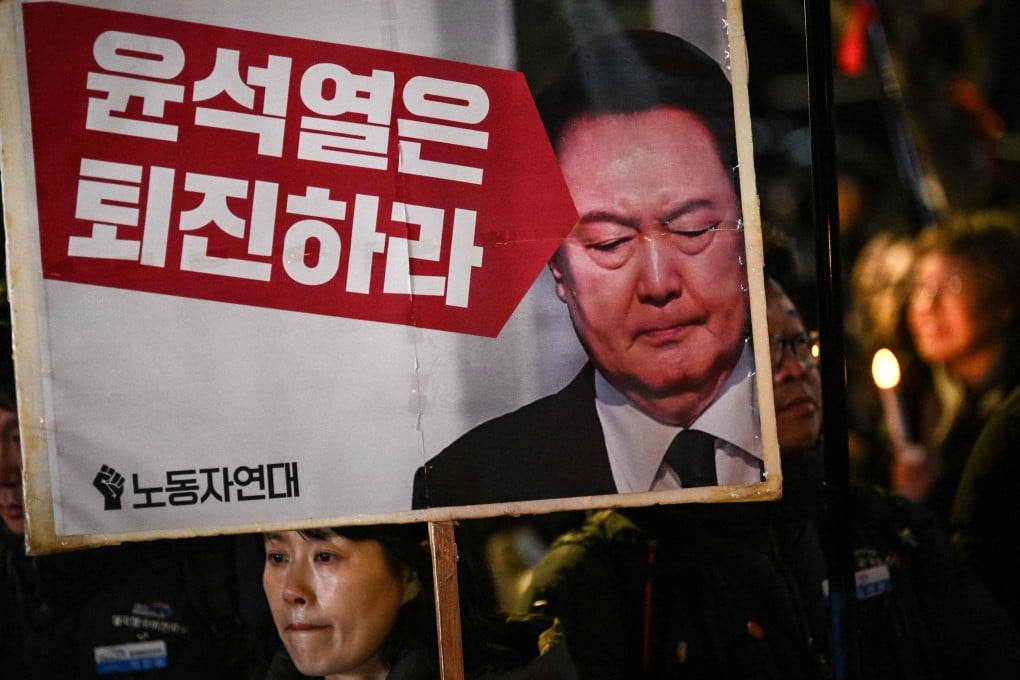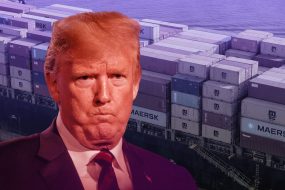
South Korea is witnessing a significant political crisis involving President Yoon Suk Yeol. Recently, Yoon declared martial law in response to escalating tensions with the opposition-controlled parliament, which he accused of undermining his government. This declaration, however, lasted only a few hours as parliament swiftly voted to lift it. This leads to widespread calls for his resignation and potential impeachment proceedings against him.
The Martial Law Declaration
Yoon’s martial law declaration was unprecedented in South Korea, marking the first such action since the country’s democratization in 1987. He justified this move by claiming it was necessary to combat “anti-state forces” and protect the nation from “falling into the depths of national ruin”. However, this action was the immediate backlash, as opposition parties and even members of his own conservative party condemned it as unconstitutional and a violation of democratic principles. The swift parliamentary response, which saw 190 lawmakers vote to overturn the martial law, highlighted the lack of support for Yoon’s drastic measures.
The Political Fallout
The fallout from Yoon’s actions has raised serious questions about his ability to govern effectively for the remainder of his term. Analysts have described his declaration as “political suicide,” suggesting that it may severely limit his political future. The opposition has initiated impeachment proceedings, and public sentiment appears to be turning against him, with protests calling for his ouster.

The Downfall of Past Presidents
The current turmoil surrounding President Yoon is not an isolated incident; it reflects a troubling pattern in South Korean politics where presidents often face significant challenges, leading to their downfalls. Here’s a brief overview of some past presidents and the reasons behind their failures:
1. Park Geun-Hye (2013-2017)
- Impeachment and Imprisonment: Park was impeached due to a corruption scandal involving influence peddling and abuse of power. She was later sentenced to 20 years in prison.
- Public Discontent: Her administration faced widespread protests and public outrage, which ultimately led to her removal from office.
2. Lee Myung-Bak (2008-2013)
- Corruption Charges: Lee was sentenced to 15 years in prison for corruption, including bribery from major corporations like Samsung.
- Economic Challenges: His presidency was marred by economic difficulties and public dissatisfaction with his policies.
3. Roh Moo-Hyun (2003-2008)
- Tragic End: Roh faced allegations of corruption and was under investigation when he tragically took his own life.
- Political Polarization: His administration was marked by significant political division, particularly regarding relations with North Korea.
4. Chun Doo-Hwan and Roh Tae-Woo (1980s)
- Authoritarian Rule: Both leaders were associated with military rule and faced severe backlash during their tenures, leading to their eventual convictions for treason and corruption.
Reasons for the Downfalls
The recurring theme in the failures of South Korean presidents includes:
- Corruption and Scandals: Many presidents have been embroiled in corruption scandals that erode public trust.
- Political Polarization: The intense rivalry between conservative and liberal factions often leads to political instability.
- Public Discontent: Economic challenges and social issues frequently spark protests against sitting presidents.

The current situation with President Yoon Suk Yeol underscores a broader trend in South Korean politics: Leaders struggle to maintain authority amid corruption allegations, political strife, and public dissatisfaction. As Yoon navigates this crisis, he faces the daunting task of restoring trust and stability in a deeply polarized political landscape.
Read more on Lifetips.blog













